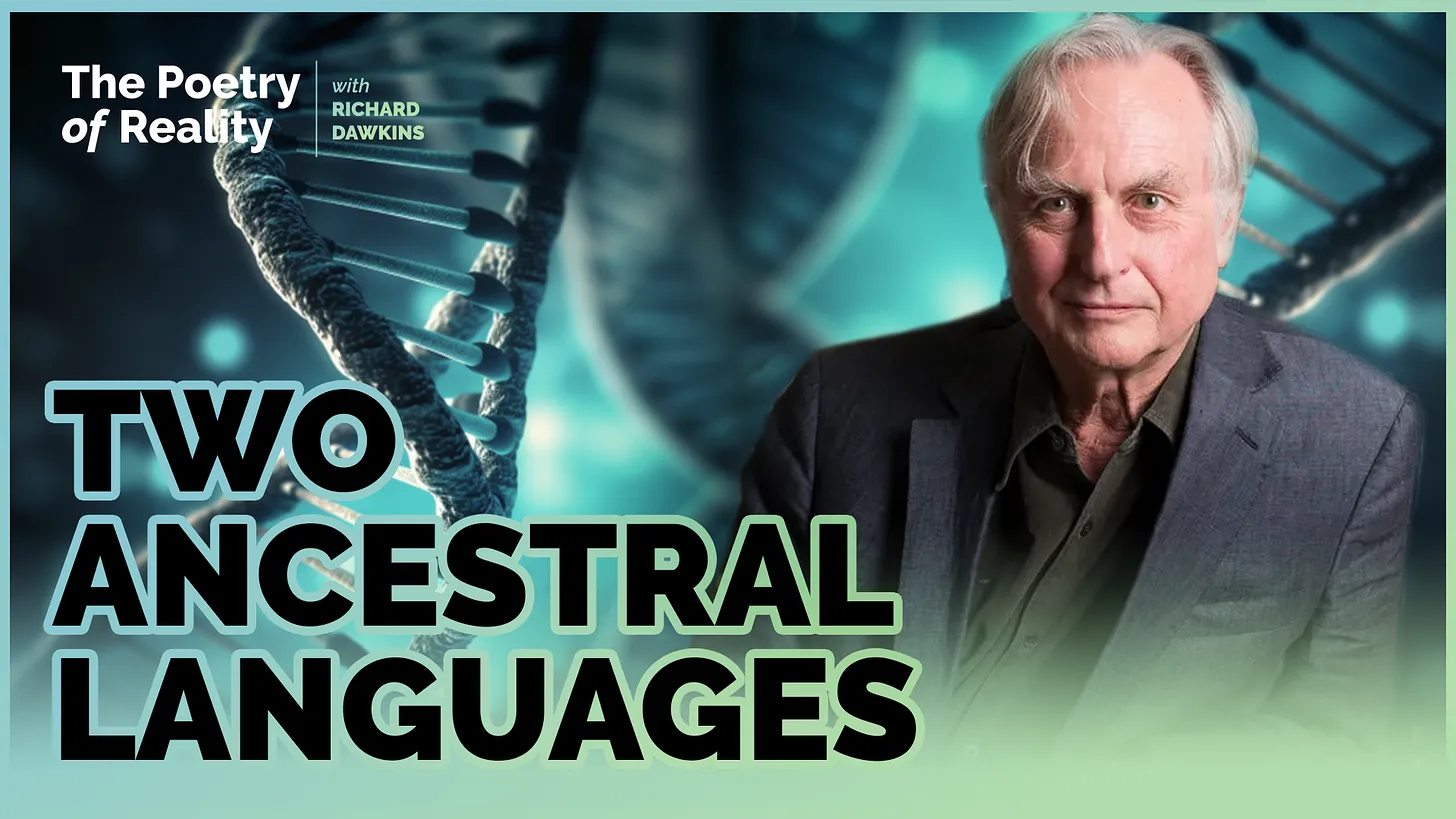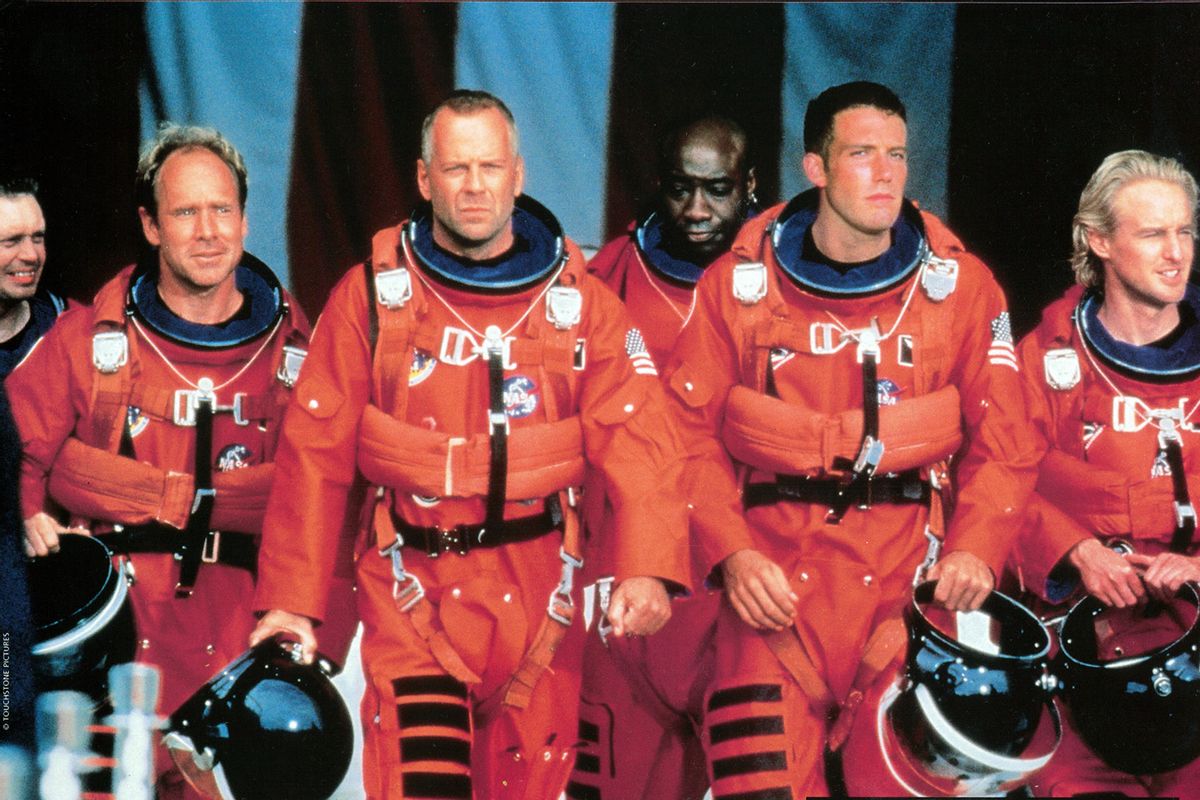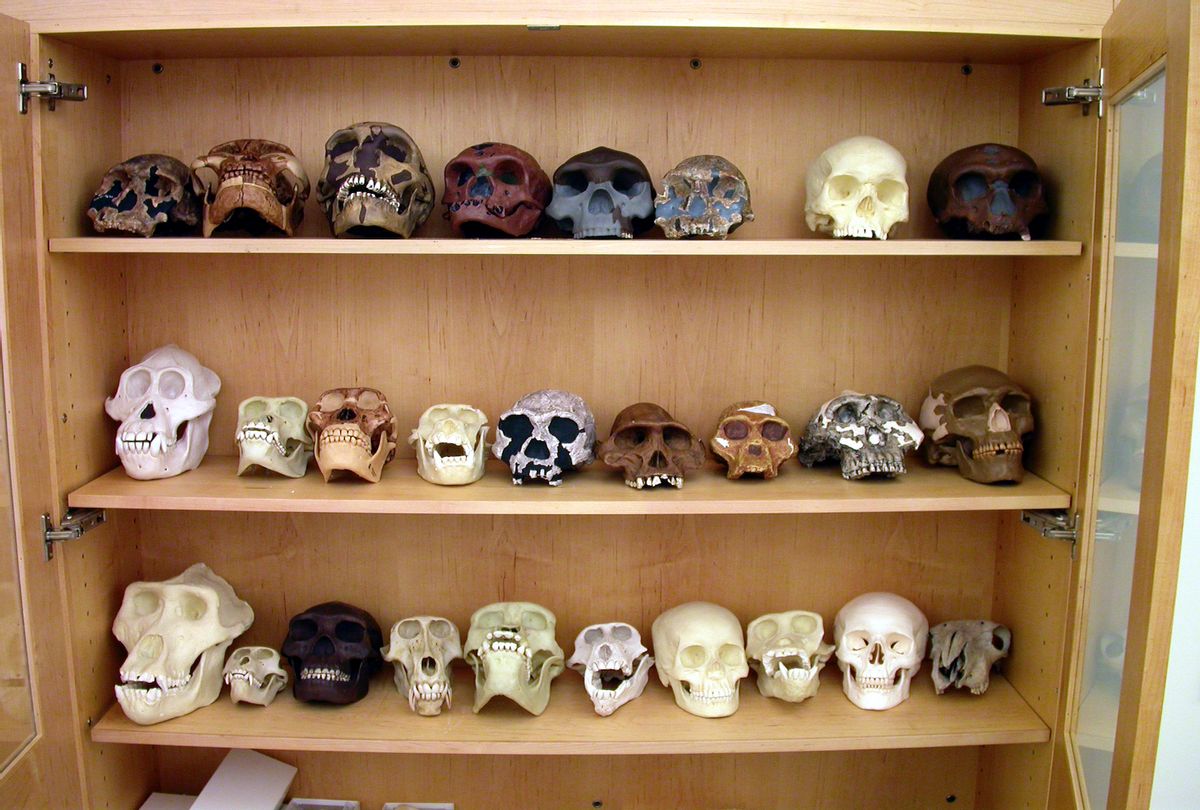- Richard Dawkins on the ancestral language of DNA;
- How humans have interpreted fossils throughout history;
- Recalling the scientifically inaccurate and intellectually hostile movie Armageddon, from 1998;
- How an article about a refinement to our understanding of human evolution overstates its case;
- And as a lagniappe, Natalie Merchant, who has a new album out; and recalling “San Andreas Fault.”
Richard Dawkins, too, has a blog on Substack, which has become a refuge for those writers unable to find a home on traditional sites, or perhaps because they can make direct money through Substack subscriptions. You don’t have to subscribe to see most of the posts, but apparently you get extra things if you subscribe. (I haven’t subscribed to any yet; I don’t mind doing so, but I suspect the costs would quickly add up.)
Currently I’m already following the religious skeptic Hemant Mehta (https://friendlyatheist.substack.com/), who went there after Patheos.com disbanded its “nonreligious” blogs (apparently because the religious were offended by their existence); the historian Heather Cox Richardson (https://heathercoxrichardson.substack.com/), and the economist Robert Reich (https://robertreich.substack.com/) there, and perhaps others. I need to reorganize my bookmarks.
Dawkins’ Substack is called “The Poetry of Reality”.

Richard Dawkins, Substack, 30 Jun 2023: Two Ancestral Languages
It seems this piece was to be the prologue of his next book, The Genetic Book of the Dead (2024), but he decided to post it here instead. The beginning:
“Tell me a story, Father. Tell me of the world before I was born. But first, repeat the story of your own father’s life and the world in which he lived, as he told it to you in every detail. And before that, your grandfather’s life and world, as he detailed it to your father. And before that . . . great great great great great grandfather’s life story in his world, as he told it to great great great great grandfather. How did they live all those centuries ago? What was the world like?” I want to know everything about those pasts, so I can pass the information on to my own children, and nothing will be forgotten.
Theoretically, spoken language has the narrative power to preserve, from parent to child down an indefinite succession of generations, a full and detailed record of ancestral history. I don’t need to tell you it doesn’t work like that. It is derisory how little information trickles through. And that’s no bad thing. The sheer volume of information that would accumulate with each generation would overwhelm us. Of my eight great grandparents, I know either nothing or little more than their names. That is sad but inevitable. Even written records, letters, diaries, chronicles, are so fragmentary that historians can’t agree on what happened to a whole country, let alone how to interpret it. Yet language potentially could have transmitted a detailed record – everything each generation might say to the next – across indefinite generations.
In contrast, Dawkins goes on, is DNA, a language that can be traced back to detect the entire history of life. That is the theme of the forthcoming book.
\\

Big Think, Tim Brinkhof, 5 Jul 2023: From dragons to dinosaurs: How people interpreted fossils throughout history, subtitled “People discovered prehistoric fossils long before Charles Darwin published ‘On the Origin of Species.’ The remains of these unknown creatures often puzzled their discoverers.”
The Key Takeaways paragraph:
• In the past, dinosaur fossils have been mistaken for Cyclopes, dragons, and giants. • Without an understanding of evolution, extinction, or deep time, it was difficult to determine what fossils were or where they came from. • Ultimately, these fossils discovers and the ensuing misinterpretations paved the way for the birth of paleontology.
This piece illustrates a point similar to the idea that when you have a hammer, every problem looks like a nail. Inevitably, when people discover new things, they interpret them in light of what they already know, or think they know. Thus, Westerners identified fossils, especially those of creatures who no longer exist, with things mentioned in the Bible. Other cultures drew on their own myths and saw dragons, or unicorns, or sea serpents. The solution to these mistakes was to gather more evidence, and read more than one book.
\\

Salon, Matthew Rozsa, 4 Jul 2023: “Armageddon” is 25 years old: Scientists agree this problematic blockbuster aged like warm milk, subtitled “‘Armageddon’ isn’t just scientifically inaccurate — experts also say that it is downright hostile to intellectuals”
I won’t bother to quote; the article is free. This movie, and a similar one that same year in 1998, Deep Impact, are the reasons that when I cover movies on my blog, I use the trivializing term “skiffy flix“. The exceptions to the generalization that virtually all “sci-fi” movies are nonsense can be counted on the fingers of one hand. OK, maybe two.
\\

Salon, 1 Jul 2023: A new model for human origins in Africa upends commonly held beliefs about our evolution, subtitled “There’s a promising new model for human origins in Africa — but scientists don’t quite know what to do with it”
I note this not to opine about human evolution, but to note that the non-specialist media tends to exaggerate scientific stories in their headlines to make some new “discovery” or “model” seem more dramatic than it actually is. No, evolution has not been upended, as credulous readers might want to think (Ah ha!, the scientists admit they were wrong!). The discovery here is a tiny refinement to a broad story that has been widely accepted for a century or more.
\\
Pop singers seem to release new albums more slowly than ever. I began listening to Natalie Merchant with this album, beginning with this song, back in 1995. Her tenth studio album, Keep Your Courage, came out in April. Here is a cut from that first album. “San Andreas Fault.”
There is a similar situation with Peter Gabriel, who hasn’t released a new album in a decade, and supposedly has one scheduled for late this year, or early next.





